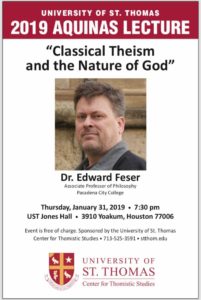The Sobering French Revolution Continues…
As was pointed out earlier this year, France as a whole has less seminarians now than it did before the French Revolution see: here. Vocations to the priesthood and religious life are truly an indicator of the direction towards or away from Christianity in a country because the more who are willing to lay their lives on the line, the more who can vocalize the message of Christianity in that place.
Just over 200 years ago in the same country, the founder of sociology, Auguste Comte spoke about the importance of the priesthood in spreading Christianity and that is why he designed a priesthood for the Religion of Humanity which he hoped would replaced Catholicism in France. He named it ‘Catholicism minus Christianity’ since it took the successful structure and combined it with positivism–the claim that the only valid truth is empirical knowledge.
More about the priesthood of Humanity:
- Priests were required to be married, because of the ennobling influence of womanhood.
- They would conduct services, including Positivist prayer, which was “a solemn out-pouring, whether in private or in public, of men’s nobler feelings, inspiring them with larger and more comprehensive thoughts.”
- The purpose of the religion was to increase altruism, so that believers acted always in the best interests of humanity as a whole.
- The priests would be international ambassadors of altruism, teaching, arbitrating in industrial and political disputes, and directing public opinion.
- They should be scholars, physicians, poets and artists. Indeed all the arts, including dancing and singing should be practiced by them, like bards in ancient societies.
- This required long training. They began training from the age of twenty-eight, studying in positivist schools.
- From thirty-five to forty-two a priest served in an apprentice position as teacher and ritualist. Only at the age of forty-two could he become a full priest.
- They earned no money and could not hold offices outside the priesthood. In this way their influence was purely spiritual and moral.
- The High Priest of Humanity was to live in Paris, which would replace Rome as the centre of religion.
p.424.
Who are the high priests of humanity today? Did the Religion of Humanity really die off, or just the name? I think you know the answer.
Comte was a smart man because he knew that ritual and liturgy are an essential part of being human. Attempt to take away both religious belief and the culture/liturgy, and you can guarantee a failure due to popular habit. But take away the religion and reform the liturgy to fit a different belief….well…now there’s at least a chance.




